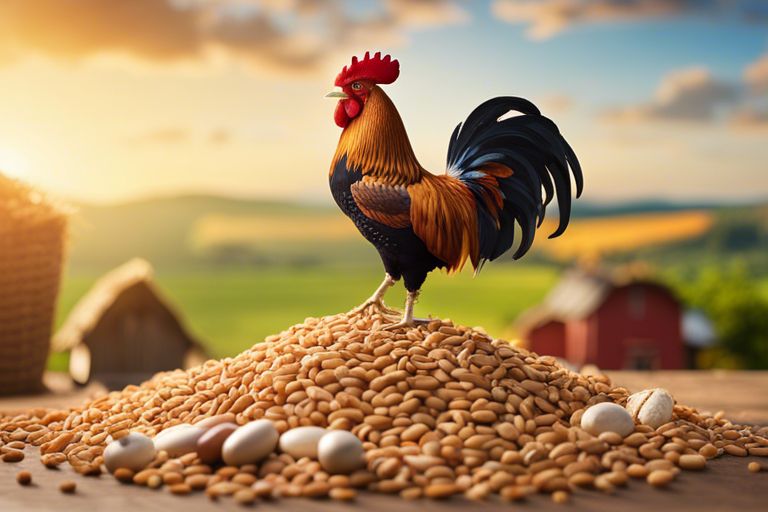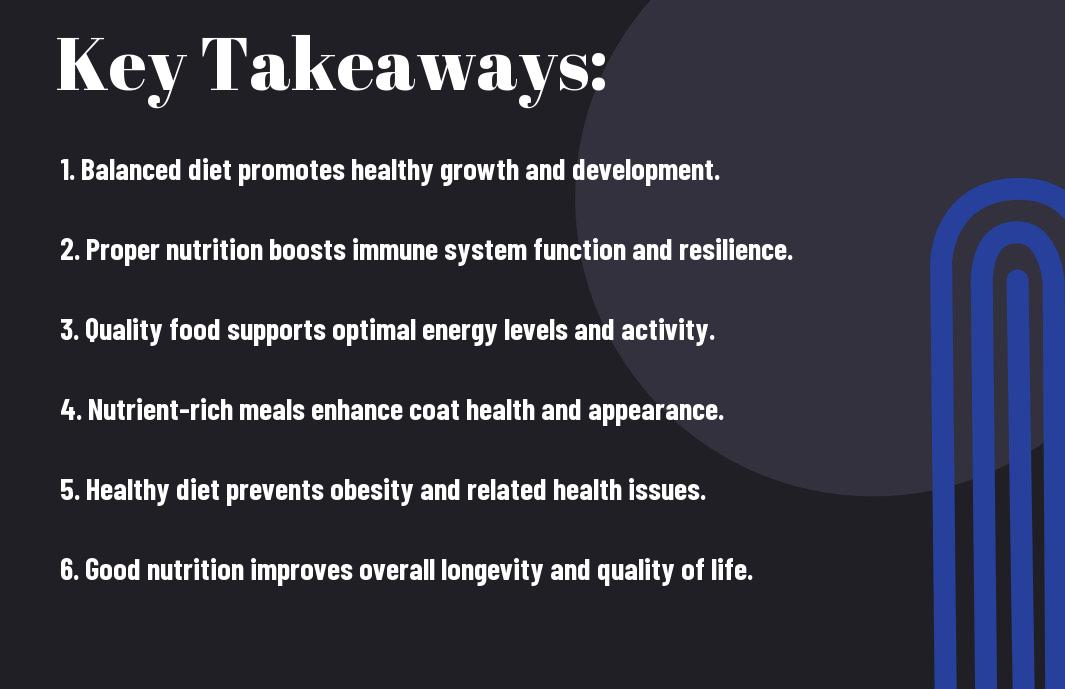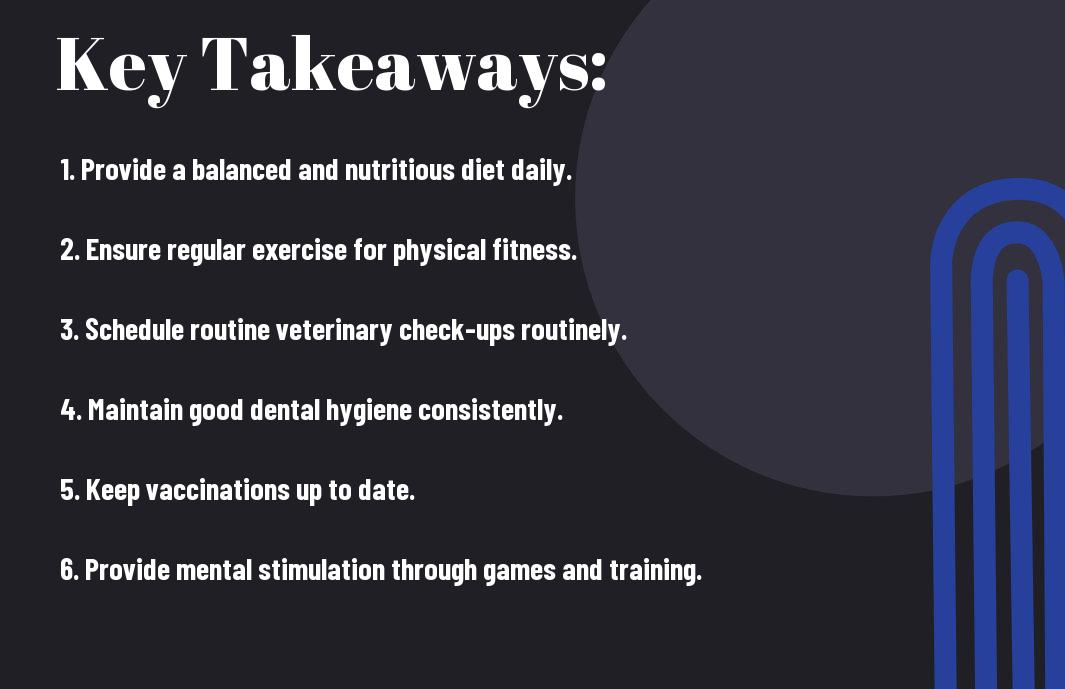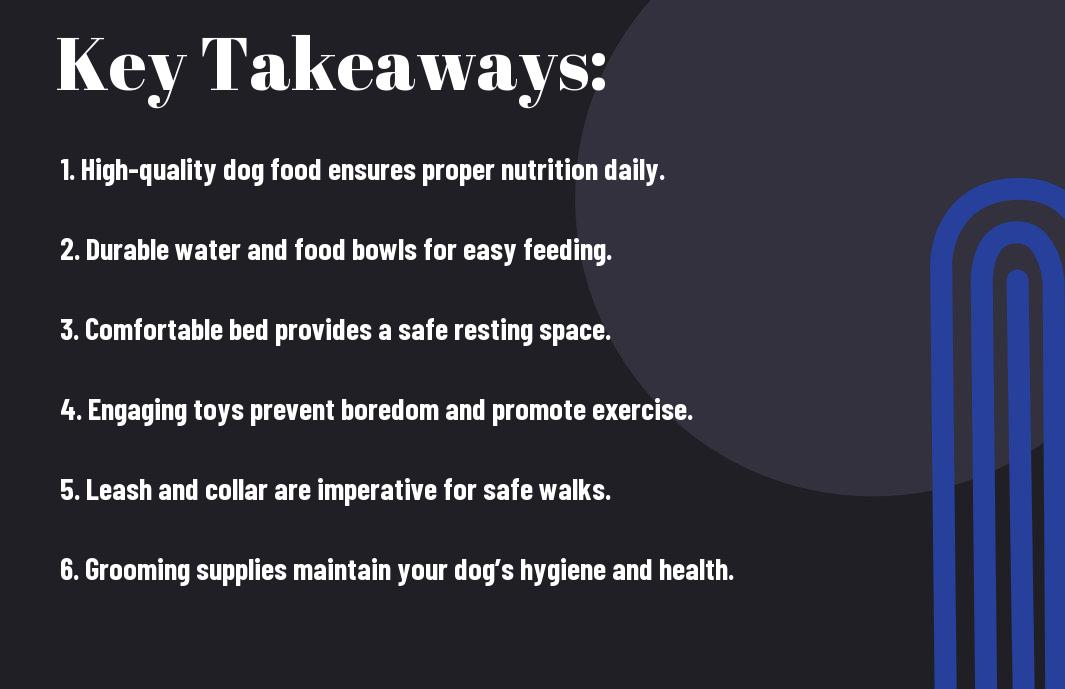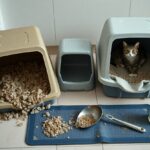Concerning keeping your rooster in optimal health and happiness, the feed you provide plays a crucial role. Choosing the right feed can ensure that your rooster gets the necessary nutrients to stay healthy and energetic. In this blog post, we will explore the best feed options for keeping your rooster in top condition, from ensuring proper protein levels to maintaining a balanced diet to support overall wellness. Stay tuned to learn more about how you can keep your feathered friend thriving with the best feed choices available.
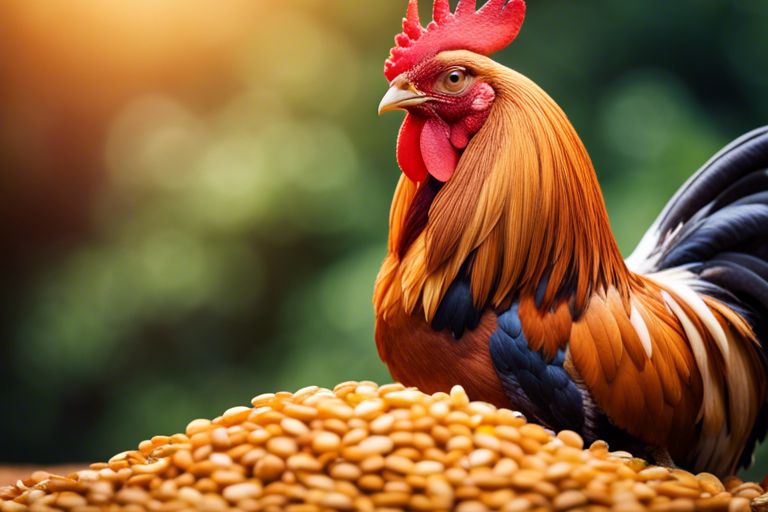
Understanding Rooster Feed Components
Macronutrients: Proteins, Fats, and Carbohydrates
For optimal health and vitality, roosters require a balanced diet that includes imperative macronutrients – proteins, fats, and carbohydrates. Proteins are crucial for muscle development and overall growth, while fats provide energy and support the absorption of fat-soluble vitamins. Carbohydrates, on the other hand, are a quick source of energy that keeps your rooster active and energetic.
Essential Vitamins and Minerals
An imperative part of a rooster’s diet is ensuring they receive all the necessary vitamins and minerals for their overall well-being. An adequate supply of vitamins like A, D, E, and K, as well as minerals such as calcium, phosphorus, and potassium, is imperative for maintaining strong bones, healthy feathers, and a robust immune system. These nutrients also play a crucial role in metabolism and other physiological functions.
Understanding the appropriate balance of macronutrients, vitamins, and minerals in your rooster’s feed is key to promoting their health and happiness. Providing a well-rounded diet will not only ensure their nutritional needs are met but also support their overall well-being and longevity.
Types of Feed for Roosters
While ensuring your rooster’s health and happiness, choosing the right feed is vital. There are various types of feed available, each with its own benefits and considerations. Understanding the different options can help you make an informed decision for your feathered friend.
| Commercial Rooster Feeds | Organic and Natural Feed Options |
Commercial Rooster Feeds
With a variety of pre-made options available in the market, commercial rooster feeds are convenient and balanced in nutrition. These feeds are formulated to meet the specific dietary needs of roosters, providing vital vitamins and minerals to support their overall health and vigor. The convenience of commercial feeds makes them a popular choice for many poultry owners.
Organic and Natural Feed Options
Options for organic and natural feed are becoming increasingly popular among rooster owners who prioritize the quality of ingredients. These feeds are typically free from artificial additives and GMOs, offering a more natural diet for roosters. To ensure the feed meets organic standards, look for certifications from reputable organizations.
To provide additional benefits for your rooster, organic and natural feeds may contain ingredients such as herbs, probiotics, and vital oils that can support their immune system and overall well-being. When opting for organic and natural feed options, consider the specific dietary needs of your rooster and consult with a poultry nutritionist if needed.
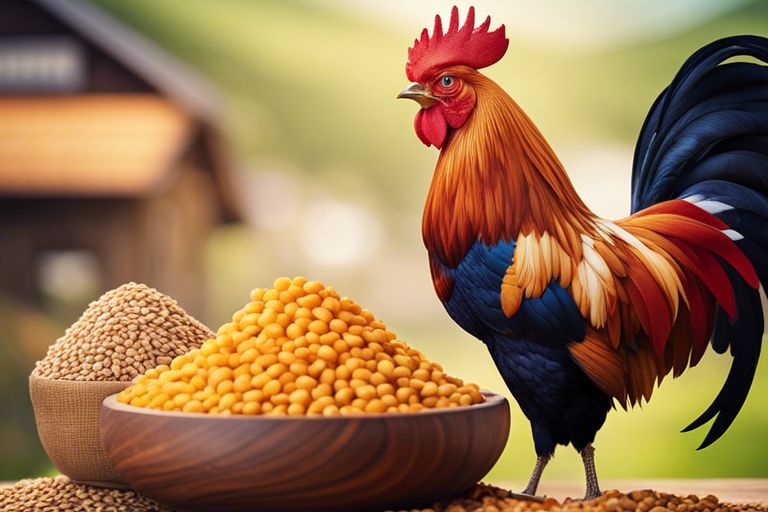
Feeding Strategies for Optimal Rooster Health
Age-Appropriate Feeding Schedules
All roosters, regardless of age, require a balanced diet to stay healthy and happy. Pertaining to feeding your rooster, it’s important to consider age-appropriate feeding schedules. Young roosters need a diet high in protein to support their growth and development, while mature roosters benefit from a diet that helps maintain their overall health and energy levels. Be sure to provide feed specifically formulated for roosters at different life stages to ensure they are getting the nutrients they need.
Treats and Supplements
With treats and supplements, moderation is key when it comes to keeping your rooster healthy. While it’s fun to spoil your feathered friend with treats like mealworms, fruits, and vegetables, it’s important to remember that these should only make up a small portion of their overall diet. Additionally, supplements like vitamins and minerals can be beneficial, but they should be used as directed and not as a substitute for a balanced feed.
Plus, it’s vital to pay attention to your rooster’s overall health and adjust their diet accordingly. Consult with a poultry nutrition expert for personalized advice on incorporating treats and supplements into your rooster’s feeding routine to ensure they remain healthy and happy for years to come.

Common Health Issues Linked to Improper Feeding
Nutritional Deficiencies and Their Prevention
Health issues in roosters can arise when they are fed an inadequate diet that lacks imperative nutrients. Nutritional deficiencies can lead to problems like poor feather quality, decreased egg production, or weakened immune systems. To prevent these issues, ensure your rooster is eating a well-balanced diet that includes a mix of grains, seeds, fruits, vegetables, and a source of protein such as mealworms.
Overfeeding and Obesity in Roosters
Obesity is a common issue in roosters that can have serious health implications. Overfeeding can lead to weight gain, which puts extra strain on the rooster’s joints and can impact their overall mobility. It can also contribute to reproductive problems and decrease their lifespan. To avoid overfeeding, monitor your rooster’s food intake closely and provide them with proper portion sizes based on their individual needs.
Plus, make sure to offer plenty of opportunities for exercise, such as free-ranging or providing toys that encourage movement. Regular veterinary check-ups can also help you monitor your rooster’s weight and overall health to address any potential issues early on.
Final Words
Hence, choosing the best feed for your rooster is crucial in ensuring its health and happiness. By providing a balanced diet that meets its nutritional needs, you can promote strong immune function, optimal growth, and vibrant plumage. Remember to offer a variety of high-quality grains, proteins, vitamins, and minerals to keep your rooster in peak condition. Additionally, consider supplementing its diet with fresh fruits, vegetables, and occasional treats to add enrichment and variety. With the right feed and care, your rooster will thrive and bring joy to your flock for years to come.
FAQ
Q: What is the best feed for keeping roosters healthy and happy?
A: The best feed for roosters is a well-balanced diet that includes a mix of grains, protein, vitamins, and minerals. Look for feeds specifically formulated for roosters to ensure they are getting all the nutrients they need.
Q: How often should I feed my rooster?
A: Roosters should be fed twice a day, once in the morning and once in the evening. Make sure to provide enough feed for your rooster to maintain a healthy weight and energy levels.
Q: What should I avoid feeding my rooster?
A: Avoid feeding your rooster foods that are high in salt, sugar, or fats. Also, make sure to avoid feeding them foods that are toxic to chickens, such as avocado, chocolate, and raw beans.
Q: Can I supplement my rooster’s diet with treats?
A: Yes, you can supplement your rooster’s diet with treats such as fruits, vegetables, mealworms, or scratch grains. Just make sure treats are given in moderation and do not make up more than 10% of their total diet.
Q: How important is fresh water for roosters?
A: Fresh water is crucial for roosters to stay healthy and hydrated. Make sure to provide clean water daily and check that the waterer is not frozen in cold weather.
Q: Do roosters need access to grit?
A: Yes, roosters need access to grit, which helps them digest their food. Grit is small, hard particles that chickens ingest to help grind their food in their gizzards.
Q: How can I tell if my rooster is getting the right nutrition?
A: You can tell if your rooster is getting the right nutrition by monitoring their weight, energy levels, feather quality, and overall health. If you notice any changes, consider adjusting their diet or consulting a veterinarian.
